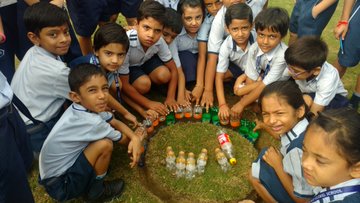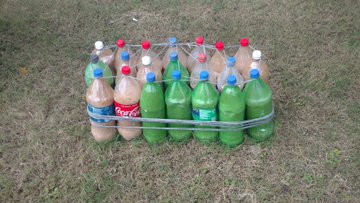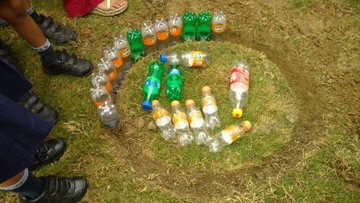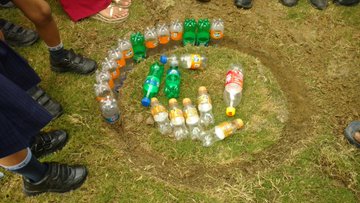



When it comes to teaching young learners about issues like climate change, reading from a textbook probably won’t be as impactful as other methods.
Kids need to learn about climate change as a fact that will determine their future, but it’s also a complex issue that may be difficult to digest at such an early age.
How do you tell children that animals are dying from swallowing too much plastic, or that large corporations are causing deforestation and greenhouse gas emissions that threaten life on Earth?
Here are some effective ways that parents and teachers can teach young students about climate change:
"Student organisers of the school strikes against #ClimateChange have accused London Science Museum of allowing #BP, #Shell & #Equinor, to 'greenwash' their reputations by funding galleries & academies"#ClimateStrike#ClimateEmergency
https://www.telegraph.co.uk/news/2019/10/05/student-climate-change-activist-plan-target-science-museum-oil/?WT.mc_id=tmg_share_tw …
Kids tend to learn better and model behaviour when they see other kids their age engaging in certain activities.
Introducing them to people like Greta Thunberg or youth organisations that are making a real difference can inspire them to learn from their efforts or pique their interest on the subject.
They can learn about the school strikes and protests led by school-going children and the implications behind them.
Try looking for examples in your community such as a environmental youth groups or clubs where students can take part in activities or attend a workshop.
Having a hard time explaining to your children or students what climate change is all about? Showing them an educational video targeted towards kids is a great way for them to learn.
Simply search on YouTube to find age-appropriate videos on climate change awareness and eco-friendly activities.
Great day for the students of Eco Warrior Club during an activity in the school garden recycling plastic bottles into a flower bed and table #clubactivity #happylearning #recycling #experientiallearning @SupritiChauhan @RGSNoida




Just like so many other important life lessons and skills, kids learn best when you lead by example. Practising eco-friendly habits in the home, like recycling, reusing and reducing single-use plastic by bringing your own containers, will rub off on them, too.
At school, teachers can also lead by example by separating waste in classrooms and cafeterias, planting trees, encouraging students to turn off lights and air-conditioning when not in use, etc.
Parents can also walk their kids to school or carpool instead of walking, explaining the impact of air pollution caused by cars.
Discuss the benefits of these activities so that children understand the importance of climate change awareness, which is beneficial for building long-term habits.
Climate change awareness is a controversial issue and there’s plenty of “fake news” and faux studies that examine the impact of climate change.
Make sure you’re educating them on the real facts by ensuring your sources are validated and backed by real scientific evidence.
If your child hears from someone that climate change doesn’t really exist (unfortunately, many adults still believe this), here’s a great article that proves your case.
Keep coming back to the facts and steer them towards more positive aspects on climate change awareness, such as real-life success stories and green practices, instead of showing them photos or videos that could be traumatising for young children.
Logging in, please wait... 
0 General Document comments
0 Sentence and Paragraph comments
0 Image and Video comments
New Conversation
New Conversation
New Conversation
New Conversation
General Document Comments 0

